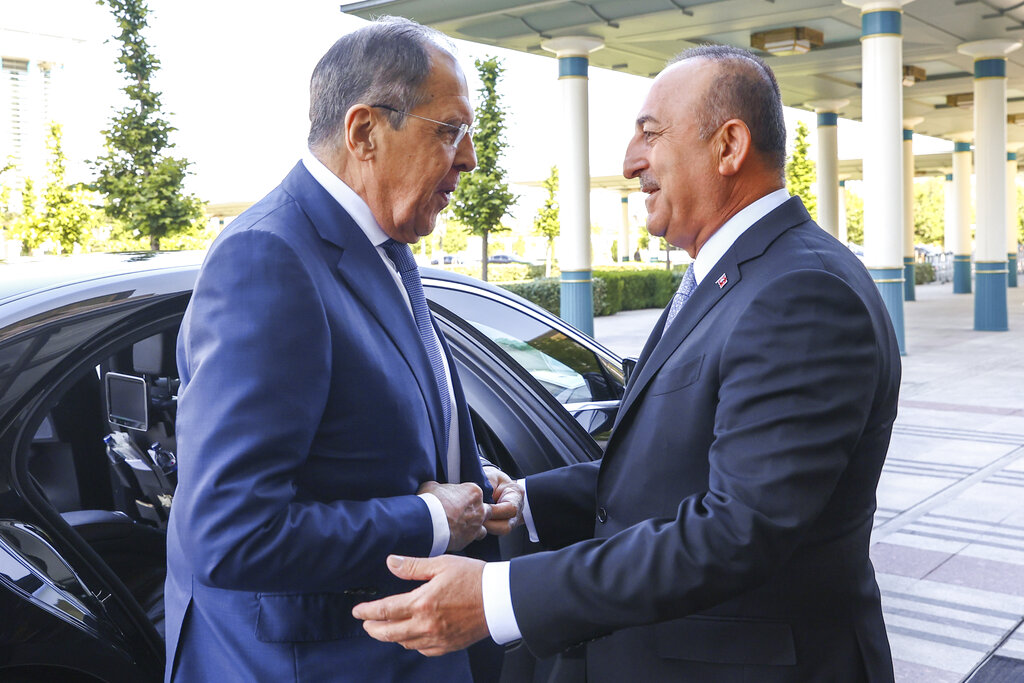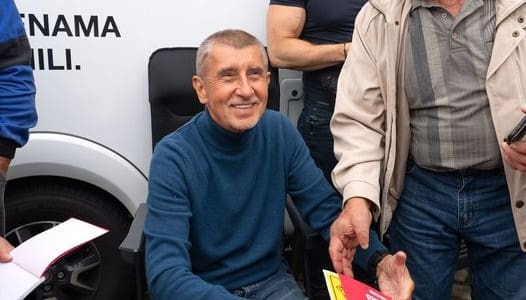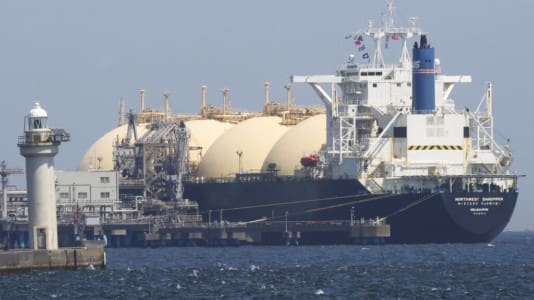With major food shortages looming in the Middle East and Africa, Russian Foreign Minister Sergey Lavrov and his Turkish counterpart Mevlüt Cavusoglu discussed in Ankara how to reboot exports of Ukrainian grain.
Ukraine, the world’s fourth-largest grain exporter, sold 6 million tons of grain a month before the outbreak of the war. The war meant sowing was missed this spring in large parts of Ukraine and 25 million tonnes of grain waiting to be exported in silos. Most of the shipments have so far sailed through the Black Sea, but this is now under Russian blockade, partly in response to Western sanctions. Although Kyiv is trying to replace traditional waterways by rail and road, their capacity is severely limited, and the country is struggling with logistical challenges.
Ukrainians are currently able to transport up to 2 million tons of grain a month, and it is estimated that alternative methods have reached their limits. Shortages are already driving up grain prices and threatening a severe food crisis, especially in Africa and the Middle East.
Lavrov arrived in Ankara on Wednesday to find a solution to the problem with Turkey, which borders Ukraine and Russia in the Black Sea and is seeking to mediate the conflict. In line with the UN proposal, it was once again suggested that Ukrainian grain be allowed to enter the world market through a maritime corridor, and that the safety of ships could in principle be guaranteed by Turkish and British forces.
The Turks also offered to help demining the waters around Odessa, with Ukrainian mines representing a major threat to any transport vessel seeking to bring the grain to market.
Russia seems to be open to this suggestion, with Lavrov reiterating earlier statements by Russian President Vladimir Putin, who promised that the defenseless port city would not be attacked if a demining operation began.
But the plan has several major drawbacks: First of all, the Ukrainians were not represented at any level in Ankara, which means a major stakeholder was not at the negotiating table. Second, Kyiv is reluctant to voluntarily demine its waters, which could open itself up to a Russian attack. Although Moscow claims that Ukrainian ships and port cities will not be targeted, trust between the two sides is almost non-existent. In the past, all proposals to transport goods through Russia, or even Belarus, have been dismissed by Kyiv.
Finally, Ukraine has little interest in giving Russia a diplomatic win. The government believes that Russia is using the grain issue to its benefit, and a deal would allow Vladimir Putin to return to the international negotiating table and prove his ability to compromise.






